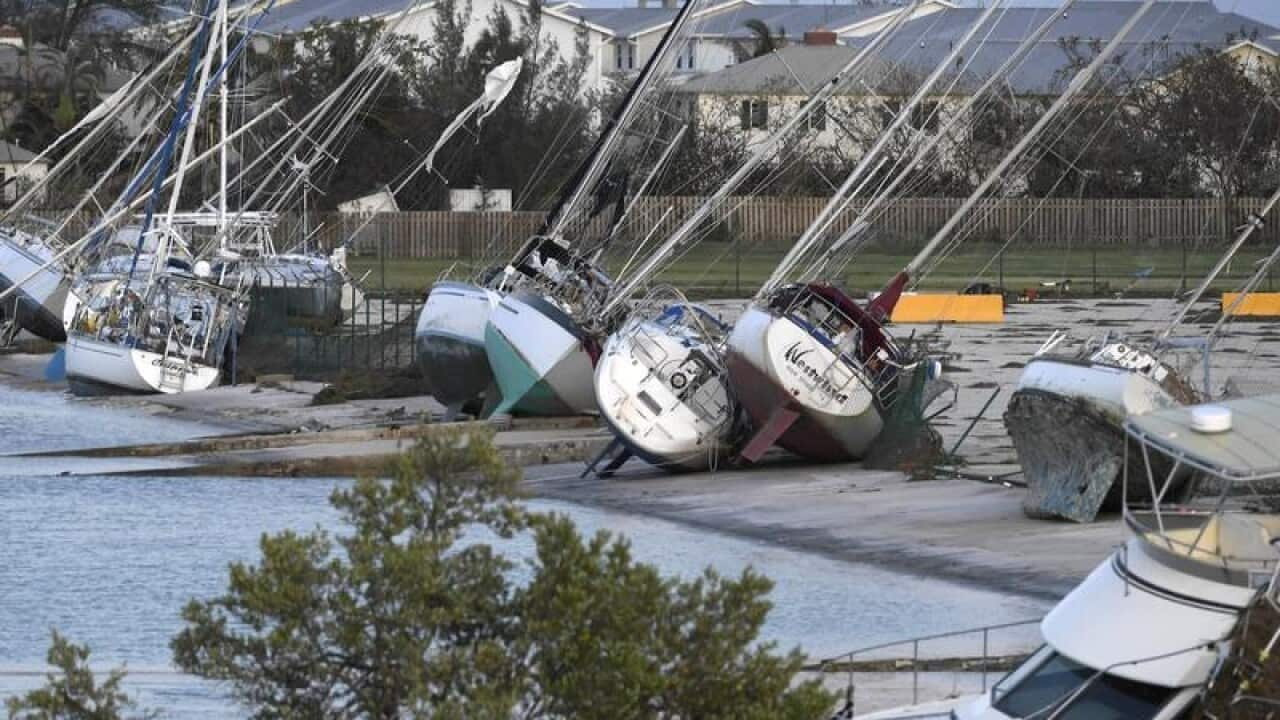Irma has weakened to a still-deadly tropical storm as it swirled beyond Florida, killing at least three people in Georgia, flooding the coast, sending trees crashing onto homes and forcing the world's busiest airport in Atlanta to cancel hundreds of flights.
The former hurricane remained an immense, 668km wide storm as its centre moved on from Florida on Monday afternoon, giving its still-formidable gusts and drenching rains a far reach.
Some 540,000 people were ordered to evacuate days earlier from Savannah and the rest of Georgia's coast. Irma sent more than a metre of ocean water into downtown Charleston, South Carolina, as the storm's centre passed 400km away. City officials urged residents to stay off the streets as a metre of water above dry ground is expected overnight.
In Atlanta, people nervously watched towering oak trees as the city, 400km inland, experienced its first tropical storm warning.
The body of a 62-year-old man who climbed a ladder behind his home was found under debris on the roof of his shed in southwest Georgia, where winds topped 65km/h.
Another man, in his 50s, was killed just outside Atlanta when a tree fell on his house, Sandy Springs police Sergeant Sam Worsham said.
And a woman died when a tree fell on a vehicle in a private driveway, according to the website of the Forsyth County Sheriff's Office.
Charles Saxon, 57, became South Carolina's first recorded death when he was struck by a tree limb while clearing debris outside his home.
Communities along Georgia's coast were swamped by storm surge and rainfall arriving at high tide on Monday afternoon.
Downtown Atlanta hotels remained full of evacuees. Many milled about the CNN Center, escaping crowded hotel rooms in search of open restaurants. Many were glued to storm coverage on the atrium's big screen. Parents pointed out familiar sites, now damaged, to their children.
Irma weakened into a tropical depression late on Monday, and the National Hurricane Center discontinued all storm surge and tropical weather watches and warnings related to the storm.
About 800 flights had been cancelled at Hartsfield-Jackson Atlanta International Airport and nearly 1.5 million Georgia Power and EMC customers were without power. Alabama Power reported 45,000 outages. Utilities said thousands of employees were prepared to respond, but repairs could take several days.
Florida Governor Rick Scott said the resort archipelago of the Keys had been hit hard, from the Gulf of Mexico to the tip of Florida's peninsula.
Some 6.5 million people, about one-third of Florida's population, had been ordered from their homes ahead of Irma's arrival, and more than 200,000 people sought refuge in about 700 shelters.
Scott urged evacuees all over the state to stay put for now rather than rush home, saying downed power lines, debris and other hazards abounded.
One of the biggest lingering problems was widespread power outages, with utilities reporting more than 7.4 million homes and businesses without electricity in Florida and neighbouring states. They said it could take weeks to fully restore service.
Scott said 65 per cent of Florida was without power.
Irma's arrival in Florida came about two weeks after Hurricane Harvey claimed about 60 lives and caused property damage estimates as high as $US180 billion after pummelling the Gulf Coasts of Texas and Louisiana with heavy rains and severe flooding.

